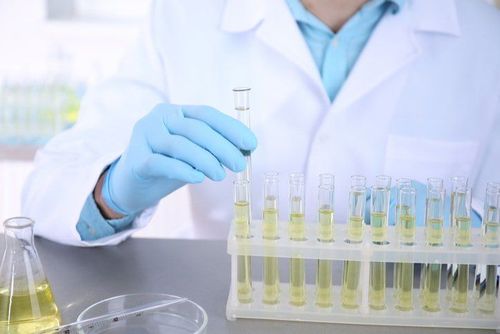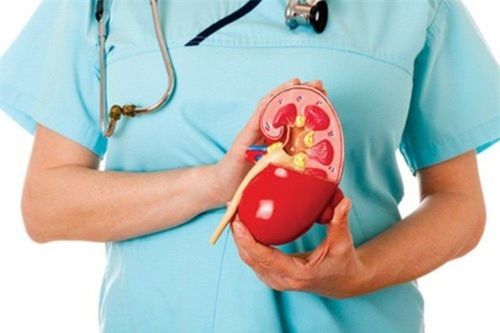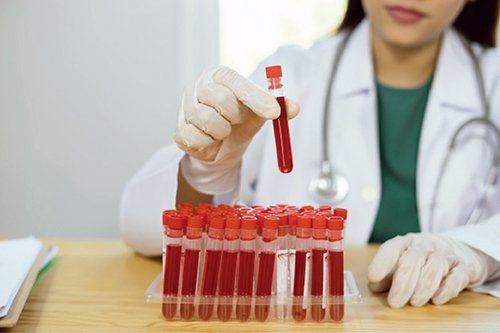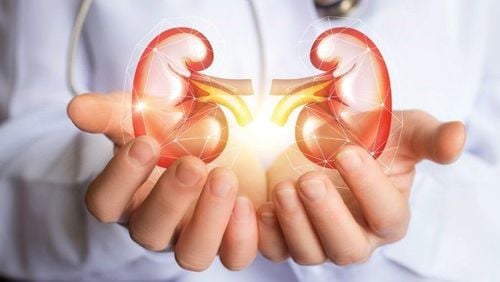This is an automatically translated article.
The article was professionally consulted by Specialist Doctor I Nguyen Hung - Endocrinologist - Department of Medical Examination & Internal Medicine - Vinmec Da Nang International General Hospital. The doctor has 36 years of working experience.Kidney is an extremely important organ for the body, there are many dangerous diseases related to the kidney, including glomerulonephritis. Glomerulonephritis can occur at any age, in any population, including infants and young children.
1. Is glomerulonephritis dangerous?
Glomerulonephritis, also known as glomerulonephritis, is an inflammation of the kidneys. Tiny filters made up of tiny blood vessels filter the blood and remove fluids, electrolytes, and waste products into the urine.If glomerulonephritis, acute or chronic, leads to the destruction of the filters, the kidneys cannot work properly and leads to kidney failure, requiring dialysis, a kidney transplant, the worst case can lead to kidney failure. to death. The rate of fatal glomerulonephritis in adults is 25%.
2. Can glomerulonephritis be cured?

Acute glomerulonephritis Chronic glomerulonephritis Acute glomerulonephritis usually progresses silently, discreetly, without With obvious clinical symptoms, most patients do not know they have the disease. It was not until by chance that he went to the doctor for another medical condition or through blood and urine tests at a health facility, microscopic red blood cells and proteinuria were detected that the disease was detected.
In some cases, the acute form develops very quickly: in the early stages of acute glomerulonephritis, you may experience bilateral lumbar pain, digestive disorders, loss of appetite, abdominal pain, nausea. ; In the full-blown stage, edema appears, initially mild edema in the face, then edema spreads to the whole body, white, soft and concave edema. Acute glomerulonephritis, if detected early, can be completely cured with proper treatment.
For chronic glomerulonephritis, whether the disease can be cured or not depends on the degree of kidney damage, the time it takes to detect the disease for treatment and the response of the disease to drugs.
Therefore, only nephrologists who directly treat the disease can answer about the possibility of cure after following treatment for at least 6 months. Besides, in order to monitor the progress of chronic glomerulonephritis leading to kidney failure and dialysis, patients must be monitored and assessed continuously every month, within the first 3 months from the time of treatment. diagnosed and under treatment. If the kidney function is still good, there is no kidney failure at the time of disease detection and treatment, the disease responds to drugs, the patient strictly adheres to the lifestyle and treatment regimen, and the proteinuria returns completely negative, then Some cases of chronic glomerulonephritis will not progress to kidney failure.
Even when the glomerulonephritis is completely cured, the patient still has to monitor kidney function every 3 - 6 months, if the condition is more stable, follow up every year. The same goes for other chronic diseases.
3. How is glomerulonephritis diagnosed?
The earlier the detection and diagnosis of glomerulonephritis, the more beneficial it will be to treat the disease and prevent the risk of complications leading to kidney failure, requiring dialysis or a kidney transplant. Doctors diagnose glomerulonephritis through the following tests:Urinalysis: measuring red blood cells in the urine, counting the number of white blood cells (an indicator related to infection or inflammation) and the amount of red blood cells in the urine. increased protein in the urine (indicating urinary tract injury).

Renal function scintigraphy is applied at the Nuclear Medicine Unit - Vinmec Times City International General Hospital. This is the most modern technique to evaluate kidney function, which is performed using high-precision recording equipment and radioactive tracer. This method gives good quality images, so functional kidney scintigraphy has become an indispensable technique in the exploration of kidney function, contributing to improving the efficiency of diagnosis and treatment of kidney diseases and diseases. urinary tract in general, including glomerulonephritis.
The patient is injected intravenously with a radioactive isotope, then the experts will record kinetic images and graphs of radioactivity over time of each kidney, analyze the graphs and images, from That assesses the function of each kidney individually.
Renal scintigraphy is applied in specific cases such as:
Assess the function of both kidneys or individual kidneys. Assess kidney function before performing a kidney transplant. Monitor and evaluate diseases such as: renal hypertension, pyelonephritis, glomerulonephritis, renal tubular necrosis, acute renal failure... Assess and monitor urinary tract obstruction. Congenital pathology is suspected in one kidney. Kidney injury. Evaluation and monitoring of function after kidney transplantation.
Please dial HOTLINE for more information or register for an appointment HERE. Download MyVinmec app to make appointments faster and to manage your bookings easily.














